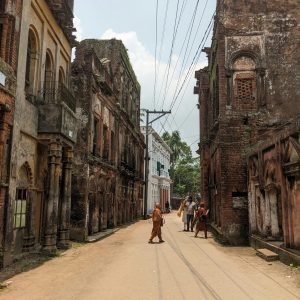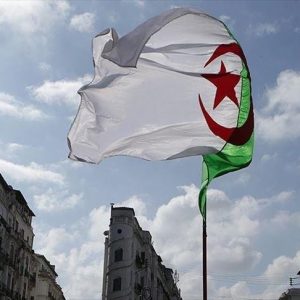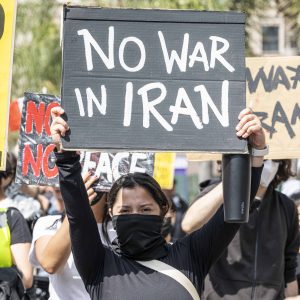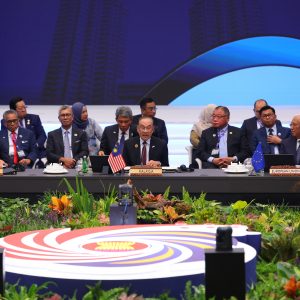Putin expects integration of AUKUS pact into NATO
MOSCOW (AA) – Russian President Vladimir Putin has said that he does not exclude the possibility of the integration of the AUKUS grouping into the NATO military alliance for Western dominance in the Asia-Pacific region.
Addressing the 11th Moscow Conference on International Security via video link, Putin said Western countries resist the formation of a multipolar world by provoking new conflicts to prevent the emergence of new power centers.
“The goal of those who do this is obvious: to continue to benefit from human tragedies, to pit peoples against each other, to force states to vassal obedience within the framework of the neocolonial system, to mercilessly exploit their resources,” he said.
NATO members continue developing new offensive potential while destroying the existing arms control system, expand areas of confrontation, moving it to space and digital domain, and use military and non-military means of pressure, the president said.
He argued that the US seeks to reform the system of interstate interaction that has developed in the Asia-Pacific region to extend its control.
“The promotion of the so-called Indo-Pacific strategies is aimed at creating military-political associations controlled by Washington. We do not exclude that they lead to the full integration of NATO forces with the structures of the AUKUS bloc being created,” he said.
On September 15, 2021, the US, UK, and Australia announced the formation of AUKUS, a trilateral security pact, under which Canberra will get nuclear-powered submarines.
Putin said conflicts in the world, including Mali and Ukraine, “originate from geopolitical adventures and selfish, neocolonial actions of the West.”
The president, however, noted that the international community could reduce confrontation at the global and regional levels, neutralize challenges and risks, and strengthen trust.
“We have been and remain firm supporters of a multipolar world order based on the priority of norms and principles of international law, sovereignty and equality of States, creative cooperation and trust,” he stressed.










